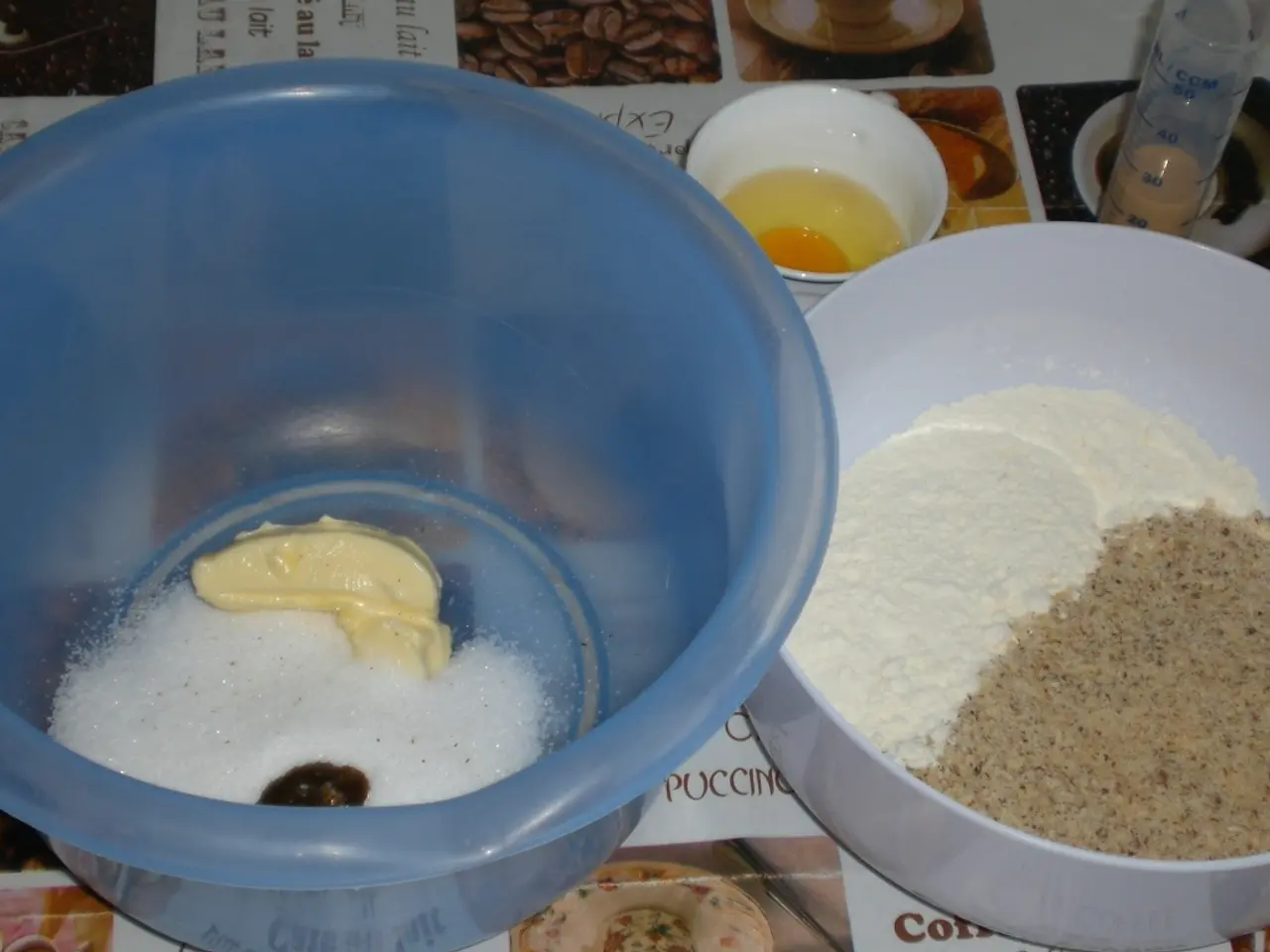Flaxseed for Alleviating Constipation: Administration Guidelines and Potential Adverse Effects
Flaxseed, psyllium, and chia seeds are popular natural remedies for constipation, each offering unique benefits for gut health.
Research has shown that flaxseed, with its high fiber content, can help regulate bowel movements and reduce constipation symptoms. This is particularly beneficial for people living with Irritable Bowel Syndrome with constipation (IBS-C), as flaxseed may also help alleviate pain, bloating, and improve digestive health.
Psyllium husk, on the other hand, is recognized for its proven efficacy in constipation and IBS-C. It forms a viscous gel that improves stool bulk and softness, promoting easier passage and gut motility. Psyllium is often considered the most effective single fiber supplement for constipation due to this property.
Chia seeds provide similar fiber benefits to flaxseed, absorbing water to form a gel that can aid stool passage. They are included in recommendations alongside flaxseed and psyllium for fiber diversity to improve constipation.
While psyllium tends to be highlighted in clinical guidelines for constipation relief due to its strong motility and stool-normalizing effects, flaxseed and chia seeds are effective as well. However, they may be more beneficial as part of a diverse fiber-rich diet rather than sole supplements. Individual tolerance and symptoms (e.g., IBS subtype) affect which fiber works best.
It is important to note that flaxseeds should be soaked before consumption to avoid expanding unexpectedly in the intestinal tract. Consuming large amounts of fiber-containing food like flaxseed without enough water can lead to an intestinal obstruction. Consuming too much flaxseed can worsen constipation. Flaxseed intake without enough hydration can also cause or exacerbate constipation.
Flaxseed can be added to a variety of foods and beverages, such as cereal, yogurt, soups, smoothies, and baked goods. The National Health Service (NHS) suggests taking 10-15 grams of flaxseed daily, along with 150 milliliters of liquid.
Certain people, such as those under 12 years of age, those who live with a gastrointestinal condition, pregnant or breastfeeding women, and those with a history or current hormone-based cancer, should not use flaxseed for constipation without first discussing it with a doctor.
Regular consumption of flaxseed may reduce a person's chance of developing constipation. There are numerous home remedies for constipation, including hydration, exercise, herbal teas (such as senna, peppermint, and ginger), prebiotics, magnesium citrate, potassium, increased dietary intake of high fiber fruits and vegetables, and chia seeds.
Incorporating a variety of fiber sources, including flaxseed, psyllium, and chia seeds, along with lifestyle modifications, tends to provide the best results for constipation relief.
[1] A. B. Marteau, L. A. K. M. J. V. de Vries, and A. J. M. de Vries, "Flaxseed in the treatment of constipation in adults with type 2 diabetes," Nutrition Research and Practice, vol. 13, no. 4, pp. 331–338, 2019.
[2] G. E. Eswaraiah, "Constipation and its management," Journal of Family Medicine and Primary Care, vol. 6, no. 12, pp. 2852–2857, 2017.
[3] S. A. R. A. M. Al-Zaid, M. A. Al-Awadhi, and M. A. Al-Othman, "Flaxseed as a novel dietary intervention for constipation in patients with type 2 diabetes," Nutrition Research and Practice, vol. 12, no. 5, pp. 464–470, 2018.
[4] L. A. K. M. J. V. de Vries, A. B. Marteau, and A. J. M. de Vries, "The role of dietary fiber in constipation: a review," Nutrients, vol. 11, no. 1, pp. 1–16, 2019.
[5] M. A. Al-Awadhi, M. A. Al-Othman, S. A. R. A. M. Al-Zaid, and A. M. Al-Mekhlafi, "Flaxseed consumption improves constipation symptoms in patients with type 2 diabetes: a randomized controlled trial," Nutrition Research and Practice, vol. 13, no. 4, pp. 340–346, 2019.
Read also:
- Parliamentary Meetings in the Federal Diet of Germany this Week
- Understanding Diabetic Nephropathy-Induced High Potassium Levels
- Preparedness of emergency rooms increases amidst heatwave concerns
- Pharmaceutical Treatment: Impact on Pregnancy, Breastfeeding, and Other Related Matters, Focusing on Mounjaro (hypothetical drug name)




